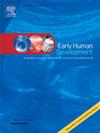新生儿生物伦理、人工智能和基因组学
IF 2.2
3区 医学
Q2 OBSTETRICS & GYNECOLOGY
引用次数: 0
摘要
人工智能(AI)和合成生物学将改变人类文明。唯一的问题是如何变革。在本文中,我将探讨医学人工智能、基因组学和合成生物学的一些最新发展。我推测了这些技术对医学实践的影响,并得出结论:它们将从根本上改变我们对健康、疾病、医学以及人类意义的看法。我有三个结论。首先,人工智能和合成生物学将迫使我们审视人文技能是否是人类独有的,如果是,它们是技能还是天赋。人工智能将为我们提供机会,审视我们的同理心是什么意思,我们如何发展沟通技能,以及什么时候人与人之间的接触对于治疗是必不可少的。其次,这些技术将改变我们评估医生工作价值的方式。可以机械化的技能将被贬值,并被委派给机器。医生要么需要学习新的技能,要么变得无关紧要。最后,人工智能和合成生物学将迫使我们深入审视人类的意义。为了让人类保持独特的价值,我们需要发展人性中那些无法机械化的方面。医生将需要仔细调整自己,以适应疾病和痛苦的非物质方面。最终,人工智能和合成生物学将迫使我们重新设计医学教育体系和医疗服务体系,以满足患者的医疗和非医疗需求。本文章由计算机程序翻译,如有差异,请以英文原文为准。
Neonatal bioethics, AI, and genomics
Artificial intelligence (AI) and synthetic biology will transform civilization. The only question is how. In this paper, I explore some recent developments in medical AI, genomics, and synthetic biology. I speculate about the implications of these technologies for the practice of medicine and conclude that they will fundamentally alter our ideas of health, disease, medicine, and what it means to be human. I have three conclusions. First, AI and synthetic biology will force us to examine whether humanistic skills can be uniquely human and, if so, whether they are skills or natural gifts. AI will offer opportunities to examine what we mean by empathy, how we develop skills in communication, and when the human touch is essential for healing. Second, these technologies will change the ways that we will assess the value of doctors' work. Skills that can be mechanized will be devalued and delegated to machines. Doctors will either need to learn new skills or become irrelevant. Finally, AI and synthetic biology will force us to deeply examine what it means to be human. For humans to remain uniquely valuable, we will need to develop those aspects of our humanity that cannot be mechanized. Doctors will need to carefully attune themselves to the non-physical aspects of disease and suffering. Ultimately, AI and synthetic biology will force us to redesign both or systems of medical education and the systems of health care delivery in ways that meet both the medical and non-medical needs of patients.
求助全文
通过发布文献求助,成功后即可免费获取论文全文。
去求助
来源期刊

Early human development
医学-妇产科学
CiteScore
4.40
自引率
4.00%
发文量
100
审稿时长
46 days
期刊介绍:
Established as an authoritative, highly cited voice on early human development, Early Human Development provides a unique opportunity for researchers and clinicians to bridge the communication gap between disciplines. Creating a forum for the productive exchange of ideas concerning early human growth and development, the journal publishes original research and clinical papers with particular emphasis on the continuum between fetal life and the perinatal period; aspects of postnatal growth influenced by early events; and the safeguarding of the quality of human survival.
The first comprehensive and interdisciplinary journal in this area of growing importance, Early Human Development offers pertinent contributions to the following subject areas:
Fetology; perinatology; pediatrics; growth and development; obstetrics; reproduction and fertility; epidemiology; behavioural sciences; nutrition and metabolism; teratology; neurology; brain biology; developmental psychology and screening.
 求助内容:
求助内容: 应助结果提醒方式:
应助结果提醒方式:


